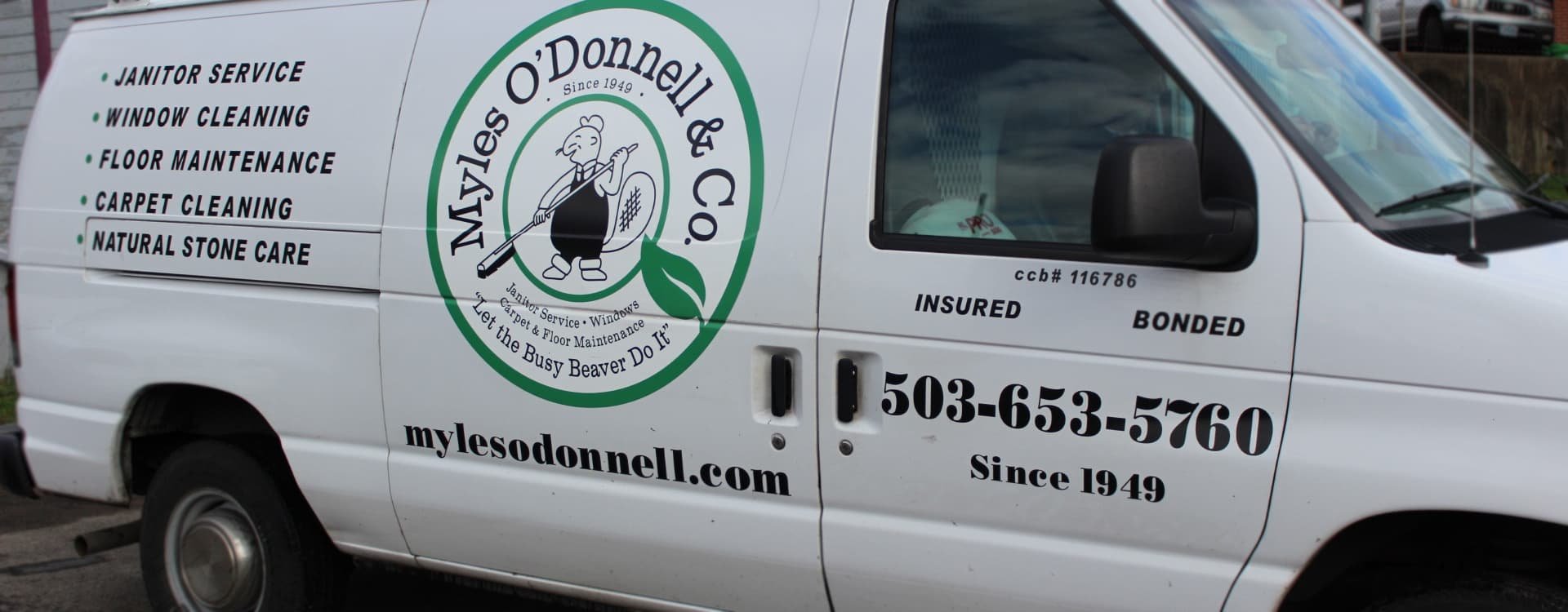
Environmentally-friendly
commercial cleaning for Portland area businesses
TRUST
Commercial janitorial contractors have your keys and alarm codes and operate in your place of business after-hours and unsupervised.
Protect Your Greatest Asset,
Your Employees
When current labor shortages have you already working with a skeleton crew, just one sick employee can force you to shut your doors. With flu season upon us, protect your employees and your business by scheduling a deep cleaning and disinfecting that can help stop the spread of germs. Contact us for details.
Since 1949, Myles O’Donnell & Company has provided professional yet personal janitorial services and commercial cleaning to our industrial and commercial customers. A 3rd generation of a family owned business, our cleaning company has over 75 years of continuous service to the Portland Tri-county area. This shows the level of commitment we have to the janitorial and commercial cleaning industry and most importantly to our clients.
Our cleaning experience, the knowledge we have acquired over the years plus the on-going training of our staff has prepared us to meet your every cleaning need. Myles O’Donnell & Company works with the latest technology through our suppliers to keep current and a leader in the commercial cleaning and janitorial services industry.
WHY CHOOSE US
We are local
We’ve been local to Portland since we opened in 1949. We are conveniently located in Milwaukie and service many successful businesses in the area.
We're experienced
Myles O’Donnell & Company is a family owned and run company, and has been since we opened our doors in 1949. You could say we know a thing or two about commercial cleaning.
Vetted
Trust is a must with your cleaning company. That’s why we vet our cleaning staff carefully. Our staff is selected and trained to do the work they are hired to do.
Important to be green
We know how important being green is to the people of Portland, that’s why we will use environmentally-friendly products on request.
Commercial Cleaning Experts
We specialize in serving local businesses, no matter the type of building, for cleaning services such as carpet cleaning, restroom sanitation and much more!
A team you can trust
We believe that business owners should focus on growing their business and not worry about keeping their office and workplace in top shape at all times.

Reassurance -
Working with Myles O'Donnell & Company
Since 1949, Myles O’Donnell & Company has provided professional yet personal commercial cleaning service to our industrial and commercial customers. Our cleaning experience, the knowledge we have acquired over the years plus the ongoing training of our staff has prepared us to meet your every cleaning need.
Myles O’Donnell & Company values the trust our customers place in us. Because we access your place of business after hours, we thoroughly vet the character and work ethic of our staff. We meticulously check references, and perform background checks for all who apply to work for us.
Myles O’Donnell & Company works with the latest technology through our suppliers to keep current and remain a leader in the commercial cleaning and janitorial industry. We offer full-service janitorial and sanitization services, from restroom cleaning and emptying wastebaskets to window washing, carpet cleaning and resilient floor care.
Because we know you have many options, we offer not just annual contracts, but also a month-to-month contract option and we simply ask for a 30-day notice if you want to cancel. We will never charge you a cancellation fee or for months you do not use our services.





